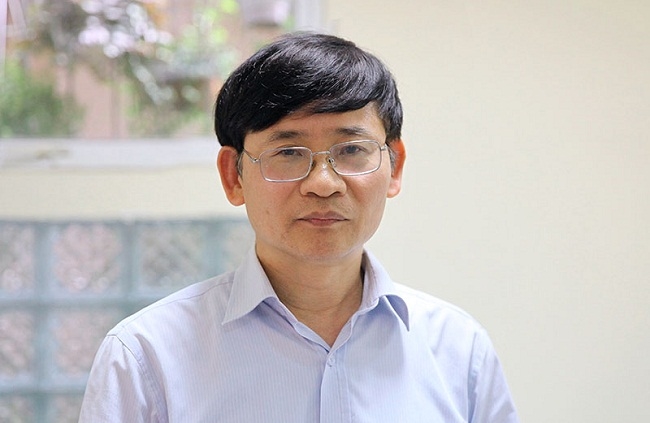Vietnam turns semiconductor vision into action
The global semiconductor industry is being reshaped by geopolitical tensions, shifting supply chains, and the surge of digital technologies.




"We set out too many business conditions and force businesses to comply. Meanwhile, the management is still loose, causing backdoor business and group interest," said lawyer Truong Thanh Duc.

Sublicense has always been the burden on the business. The process of removing these licenses has been implemented by the Government for many years but yet seen any results.
TheLEADER has interviewed Lawyer Truong Thanh Duc, Chairman of the BASICO Law Firm, around the proposal of removing nearly 2,000 sublicenses for business.
Recently, the Ministry of Planning and Investment (MPI) has submitted a proposal to the Government to remove nearly 2,000 business conditions and requirements, which is good news for the business community and investors. What do you think about this issue?
Lawyer Truong Thanh Duc: For the past several decades, the Government and other ministries have always called for advocacy and reform of administrative procedures. However, we have not seen any positive effects.
In 2001, the Government issued a series of measures to remove business conditions. However, after practical implementation, the number of these procedures has even been rising significantly.
The report of the Central Institute for Economic Management (CIEM) reveals that there are about 4,284 business conditions, while the figure recorded by the Vietnam Chamber of Commerce and Industry (VCCI) is 5,719. The real number, however, is up to 6,000 - 7,000.
Promulgating too many business regulations is not only against the Law on Enterprises, which hinders business activities but also against the international practice.
In your opinion, what are the reasons for the unseen results of abolishing sublicenses though the management agencies have repeatedly urged to remove?
Lawyer Truong Thanh Duc: The main reason is driven from the management mindset of ministries with the motto "more conditions mean more manageable".
The ministries do not concern about the quality of products and services but only scrutinize the activities of enterprises through a series of overlapping business conditions.
The ministries, with a view to perform their management function, are setting the management methods which they find most suitable. However, they could not give satisfactory answers or explainations to the questions of the society.
Such way of management proves that the management agencies are not really constructive and for the people as the voice of business community is not appreciated.
Therefore, this action could not solve the root of the problem, leaving it a longlife story.
So, what measures should be taken by the Government and management agencies to reduce barriers for businesses? Will this proposal from the MPI be feasible?
Lawyer Truong Thanh Duc: The abolition of business licenses has been stuck for years.
The Government has been actively supporting and encouraging businesses but in the end, they still find themselves in difficult situation with tightened conditions ranging from taxes, costs and insurances to wages.
Every new decree, circular or law is considered "a tie", making it more difficult for business activities.
The MPI itself is the most progressive and open-minded agency, always supporting and creating favorable conditions for businesses. However, its newly promulgated Law on Public Investment also needs to be amended due to the insufficiency of business registration domain, let alone the other ministries.
We set out too many business conditions to force businesses to comply. Meanwhile, the management is still loose, causing backdoor businesses and group interests.
Therefore, the proposal of the MPI and the government management agencies is highly welcomed. But whether we can successfully implement it or not is a huge matter requiring drastic actions from the authorities.
The global semiconductor industry is being reshaped by geopolitical tensions, shifting supply chains, and the surge of digital technologies.
The change in APA approval authority is expected to shorten processing time and enhance business proactiveness in international tax negotiations.
As hybrid cloud systems grow more complex, Vietnamese enterprises are struggling to detect cybersecurity threats moving laterally within their own networks.
The submission of the draft resolution on Vietnam’s international financial center to the National Assembly heralds a new developmental era for the country.
More than just running a 5-star resort, Kristian Petersen is redefining the art of hospitality with a humane and sustainable leadership philosophy.
For Tyna Huynh, co-founder of Drinkizz, organic is not just a food choice but a way of life that fosters a deep connection between people, nature and community.